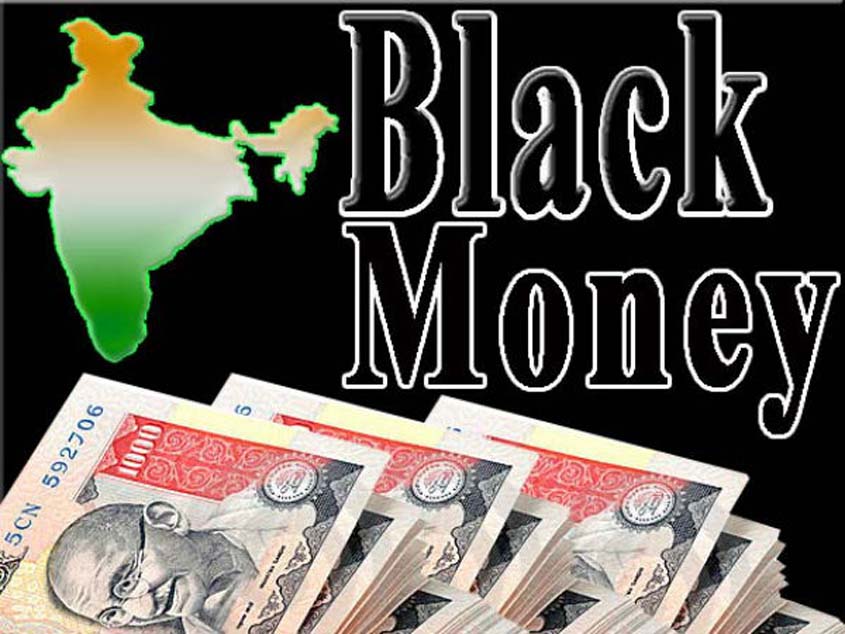Real estate crashed by 70%, new big budget film releases got halted and gold sold at Rs 51,000 per tola (10 grams). This is the immediate impact of the cancellation of big denomination currency notes—Rs 500 and Rs 1,000—by Prime Minister Narendra Modi on the night of 8 November. Even on the second day after they opened, banks and ATMs failed to meet the public demand.
The travails of the ordinary people, who wanted to convert their old notes or get at least some cash, do not seem to end due to woefully inadequate capability and response of the banking system in Telangana and Andhra Pradesh. The first casualty of the abolition of the big notes is the real estate sector, whose sales and purchases are mostly done in black, hard cash. Even the big real estate companies that claim to have been carrying out their operations in white, through cheques and demand drafts, are hit by the PM’s war against black money. Hyderabad and Bangalore are the two southern metros most affected by the move.
Interestingly, Telangana Chief Minister K. Chandrasekhar Rao (KCR) took the lead in representing the grievances of the real estate sector to Governor E.S.L. Narasimhan on Thursday night. KCR pointed out that the sector’s revenues plummeted by 60-70% and the trend will continue for a few more years. According to KCR, real estate transactions in and around Hyderabad city were reduced from 3,000 to 3,500 to 100 to 150 in the first two days after the big notes were scrapped, sources in the CM office told this newspaper.
For the past several decades, the real estate sector has been thriving mostly on cash transactions, which are obviously in black. The common practice in Hyderabad and Bangalore is to show only a tiny portion of the deal, not more than 20%, on paper. M. Shekhar Reddy, CREDAI’s (Confederation of Real Estate Developers’ Associations of India) Hyderabad chapter leader, told this newspaper that the transactions were bound to be hit as only salaried people who take loans from banks and show the entire money in white would continue to buy for the next few months or even years.
“Now the deals will have to be done as per the registered market value of the lands and flats which is only one third of the market value. Only cheques and DDs are paid and accepted and they will automatically attract income tax, up to 30%. Now tell me why anyone would decrease their land value by 60-70%?” Reddy asked.
Another sector which was hit by the wipeout of black money is automobiles. KCR told the Governor that the sale of cars and two wheelers has been severely hit by the withdrawal of Rs 500 and Rs 1,000 notes. Though the majority of sales are through bank loans, a substantial part of them, 50%, are done through cash payments. Telangana’s excise revenue, too, has been affected as the sale of liquor and business in bars and restaurants has come to a grinding halt on the first three days after the notes ban, KCR told the Governor. Liquor sales are one of the primary sources of revenues to Telangana and AP governments, fetching around Rs 20,000 crore annual revenues. This may fall by 30-40%, said officials.
To counter the CM, Union Minister of State for Labour Bandaru Dattatreya rushed to the Raj Bhawan and presented another note to the Governor stating that people were appreciating the PM’s decision and that the state had not suffered due to the ban. “It is not fair for KCR to object to the war on black money,” Dattatreya told this newspaper Friday evening.
However, a crash in real estate deals and automobiles has resulted in buoyancy in gold and jewellery markets. As people rushed to convert their unaccountable big notes into assets, gold prices have soared high on the weekend. As against the market price of Rs 32,000 per 10 gm, some people have shelled down up to Rs 51,000 per 10 gm to buy gold. This is because the gold shops have offered to accept the banned old Rs 500 and Rs 1,000 notes, if the customers buy at least one tola gold jewellery. Of course, gold shops are not among the exemptions announced by the RBI to accept old notes until 11 November, but the jewellers have taken the risk. “We cannot say no to our old customers,” said a jeweller in Abids, a shopping street in the city.
The Telugu film industry is another sufferer. The release of at least two big budget films, including Dhruva of Ramcharan Teja, the son of former Union minister and mega star Chiranjeevi, have been stalled. Dhruva has been postponed from 9 November to a later date, fearing empty halls as fans are cashless. Another big budget movie, Sahasam Swasaga Sagipo of Naga Chaitanya released as per schedule on Friday, but is running to empty halls.
Meanwhile, the I-T Department has carried out raids on the residences of the producers of the two-part blockbuster film, Bahubali—Shobhu Yarlagadda and Prasad Devineni—on Friday night. Sources in the I-T Department said that cash worth Rs 60 crore in Rs 500 and Rs 1,000 notes was seized from the producers’ offices. However, Arka Media, owned by the producers, refused to comment on the raids. Leading Telugu producer Prasanna Kumar told this correspondent: “Corporatisation of film making and cent per cent tax compliance would produce good films with modest budgets.”

